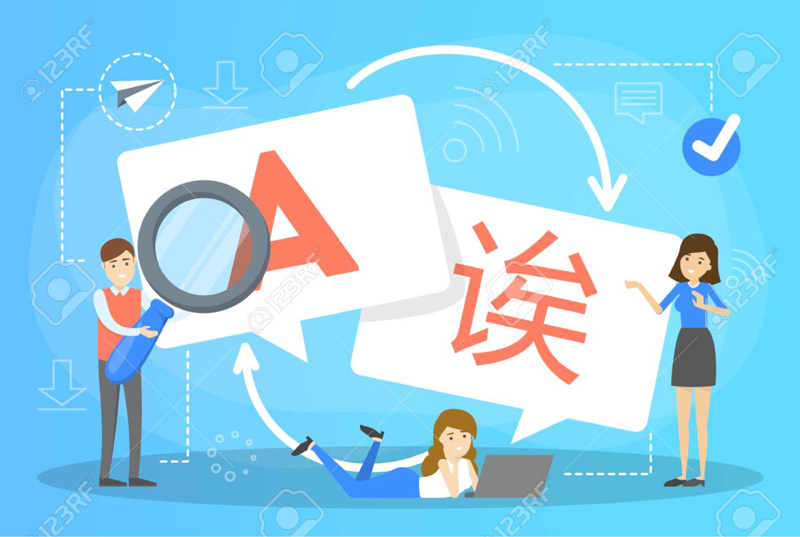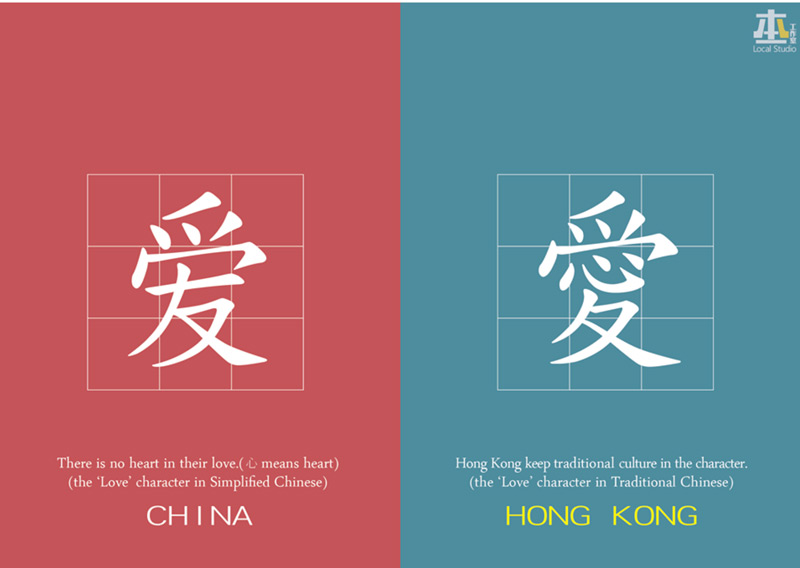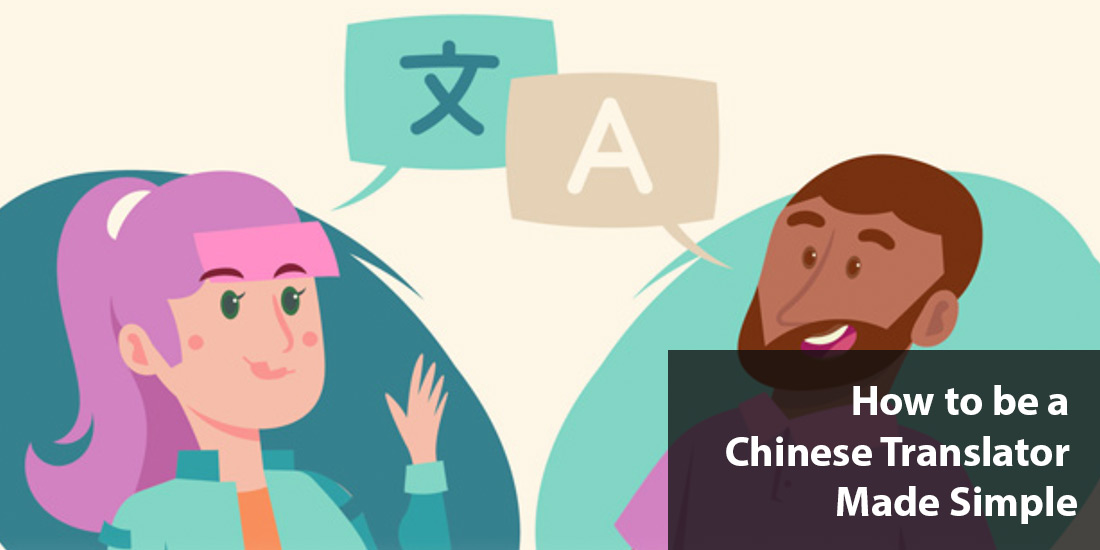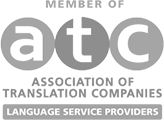Chinese is the most spoken language in the world, with over 1.1 billion people, and most are unable to speak other languages. With English being the second most spoken language in the world with over 900 million, being able to connect and communicate with one another is crucial. In this article, we uncover the process on how to be a chinese translator.
As China, the US, and Singapore are one the largest countries for trade, interacting and communicating is more important than ever. One miscommunication can result in a loss of business. That’s why using a Professional Chinese Translator for all your communications is crucial to your business success.
What is a Professional Chinese Translator

What is a Professional Chinese Translator Illustration
An accredited or certified Chinese translator is a translation professional that helps transcribe or translate written and spoken information from one language to another. Often working for corporations, governments, education, translation companies, publications, or freelancing, they are the people that connect cultures and countries together.
Chinese Translators are one of the most competitive languages to translate and also the hardest. It takes around 8 to 10 years to learn reading, writing, speaking, and listening. As Chinese share different linguistic systems, Chinese Characters and Mandarin, it takes especially long to master the language. This doesn’t include the skills that needed to be developed as a Chinese Translator.
Mandarin Vs Cantonese

Learn the differences of mandarin and chinese
Before you begin your Chinese translating career, figure out which region of China you’re interested in translating in and the purpose behind for studying the language.
Cantonese and Mandarin are both Chinese languages spoken in China. Mandarin is generally spoken in the northern part of China, such as Beijing and Cantonese is spoken south China such as Hong Kong.
Mandarin consists of using four tones and a neutral tone. While Cantonese has nine tones that can be broken into checked and open syllables. They are both vastly different while similar at the same time.
If you’re looking to learn the language for business-related translation purposes, Mandarin is the best language to learn. As there are millions of businessmen in Guangzhou and Beijing that only speak Mandarin, you can help overseas companies connect with them with your translation services.
For Cantonese, it is recommended if you’re spending most of your time in Hong Kong. As most people in HK can speak English, look to translate in the travel industry or for government officials.
Overall, Mandarin has more opportunities but is much more competitive while Cantonese has more variety in choices for translation services.
How To Become a Professional Chinese Translator

How to become a Chinese Translator illustration
To become a Chinese translator, you need to have experience and a detailed resume before you can even get considered. As it’s a very competitive language for translation services, the more people you’ve worked with, the more opportunities you’ll get through networking.
First, getting certifications and education is crucial to set yourself apart from other translators.
Translation Certification
NAATI
National Accreditation Authority for Translator and Interpreter is an examining body for translators in Australia. The purpose of NAATI is to set, maintain, and promote high professional standards for the translating sector.
Each certification provides quality assurance and confidence to customers that rely on Korean translators for their business and services. It also provides credibility to agencies that are looking for certified Korean translators.
The NAATI’s Chinese Certified Translator test is an objective assessment of the skills and competencies needed to be a translator in Australia. It also holds weight in other countries, but it is primarily used in Australia for official purposes including:
- Migration or Passport and Visa applications
- Applications to universities and professional bodies
- Submission of documentation to the court
- Translation of driver’s licenses
Hanyu Shuiping Kaoshi (HSK)
HSK is the Chinese Proficiency Test used in China. It is an international standardized exam that assesses non-native Chinese speaker’s skills with their use of the Chinese language in their daily, academic, and professional lives.
The testing follows the principle of “test-teaching correlation” where each test is designed on the current trends in international Chinese Language Training. Emphasizing objectivity, the accuracy of evaluation, and focuses the test taker’s actual Chinese language abilities.
The test consists of a writing and speaking portion which are independent of each other. There are six levels for the writing test, while three levels for the speaking test.
Writing Test Expectations:
Level 1: Test Takers understand and use simple Chinese phrases. They meet the basic needs for communicating and have the ability to improve in their future Chinese language Studies
Level 2: Test Takers have an excellent understanding of basic Chinese and can communicate in a basic manner that involves simple and direct exchange of information
Level 3: Test Takers understand and communicate Chinese in their daily, academic, and professional lives. They can manage and get by most communication in Chinese when traveling across China.
Level 4: Test Takers can converse and understand Chinese on a wide range of topics. They can make normal conversation and speak fluently with native Chinese speakers
Level 5: Test Takers can give full-length speeches in Chinese, read Chinese magazines and newspapers, and enjoy Chinese plays and films.
Level 6: Test Takers have an expert level in comprehending written and spoken information. Freely expressing themselves in Chinese both orally and on paper.
Results
After passing the HSK test, the test taker will receive a certificate issued by Hanban within three weeks. This certificate serves as a reference for:
Educational Institutions or training organization to evaluate their Chinese level
Reference for employers to employ, train, and employe translators
Reference for Chinese translators to understand and improve their ability to use Chinese
How to be a Chinese Translator: Work Experience
Experience is the only way to get better as a translator. No book can replicate the lessons learned from making mistakes. Starting out doing internships, entry-level jobs, or translation agencies is the best way to get your feet wet.
If you graduated or lived near a college, look to perform translation work around campus for different departments. The purpose is to gain experience and build your portfolio to show your potential clients while building your network.
The more people you know, the more likely you’ll find clients. The more work you do, the more you understand the requirements and needs that each client wants, making fewer mistakes, and understanding how to avoid bad clients.
If you have enough money and are independent, look to move to China and become immersed in the country. You’ll begin to notice different dialects, cultural aspects, communication quirks, which will naturally improve Chinese skills.
Chinese is one of the hardest languages to translate, but they are often the most rewarded. More competition means higher pay and more freedom. If that’s what you’re looking for as a translator, then you should dive into the language now.
Why Choose TranslateRight For Online Translation Services
Translated Right is a certified professional technical translation agency that provides online translations online in 50+ languages. Our translation services languages include English, Chinese, Malay, Tamil, Japanese, French, and more. Providing fast, accurate, and reliable, professional translation services for all types of documents, formats, and lengths.
With over 5000+ professional and experienced translators, we’ve filtered out the best translator using our stringent and detailed interviewing process, ensuring that you can hire only the best-qualified person for your specific translation document.
This has allowed us to simplify the whole entire technical translation process, resulting in a smooth application process.
This is seen by our 1000+ of satisfied customers from our competitive prices, friendly and efficient translation services.
If you’re looking for a translation service near me that can translate from a source language to the desired target language that conforms to the requirements of the technical side of your industry, Translated Right can help you today.
Providing a streamlined and hassle-free process, get your document translated by a professional service today.









